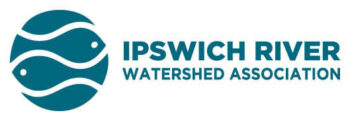Middleton used to be underwater, beneath the lake the Ipswich River once was. Having just driven from my nice toasty home in Middleton last Saturday morning, this took a moment to wrap my head around. On the map projected behind her, and with her sweeping narrative of the early (really early) days of human habitation in the Ipswich River watershed, Mary Ellen Lepionka described just that: a partially ice-covered world of woods, water and stone.
This presentation: “First Peoples of the Ipswich River Watershed”, was held at the Ascension Memorial Church on January 13th, and is the first of two presentations on the history of the Ipswich River to be held in January. The two events, co-hosted by the Ipswich River Watershed Association, the Ipswich Historical Society and the Ascension Memorial Church, hope to explore the river’s historic importance to the area and its role in shaping the world around us.
In walking many wooded places in the watershed, I’ve seen the evidence of the long-gone glaciers, but even after the two weeks of record-breaking cold, it was amazing to picture people living on their edges. Mary Ellen described the ebb and flow of the land from ice age to melt to mini ice age and how these transitions altered the landscape of the Ipswich River watershed and helped to shape the future course of the river.
So, Middleton was underwater (wouldn’t the beavers be happy!), but to the west, in what is now North Reading, people were living along Martin’s Pond and mining soapstone from its banks. Soapstone can still be found throughout the area. Walking in our open spaces may reveal holes left by the ancient peoples, worn into boulders where they’d ground meal.
Mary Ellen was a wealth of information and it was clear that her presentation had only scratched the surface of it during the Q & A session. People from all over the watershed drew on Mary Ellen’s deep well of knowledge, asking questions that came both from personal experience and academic inquiry.
Mary Ellen is currently studying the archaeology and early history of the Cape Ann vicinity for a book on the subject. Her interest in local Native American history and culture is supported by a career in anthropology and teaching at Boston University and the University of British Columbia. She is co-chair of the Gloucester Historical Commission and a trustee of the Massachusetts Archaeological Society. We were very happy to have her elucidate our river’s long history. We look forward to having her return to the Ascension Memorial Church on Saturday, January 27th at 4 pm, for her second presentation, “Algonquians on the Ipswich River”.

this sounds like it was utterly fascinating!!!! would that i could have attended.
It was great! Hope you can make it for her second presentation on Saturday, January 27th 4 PM.